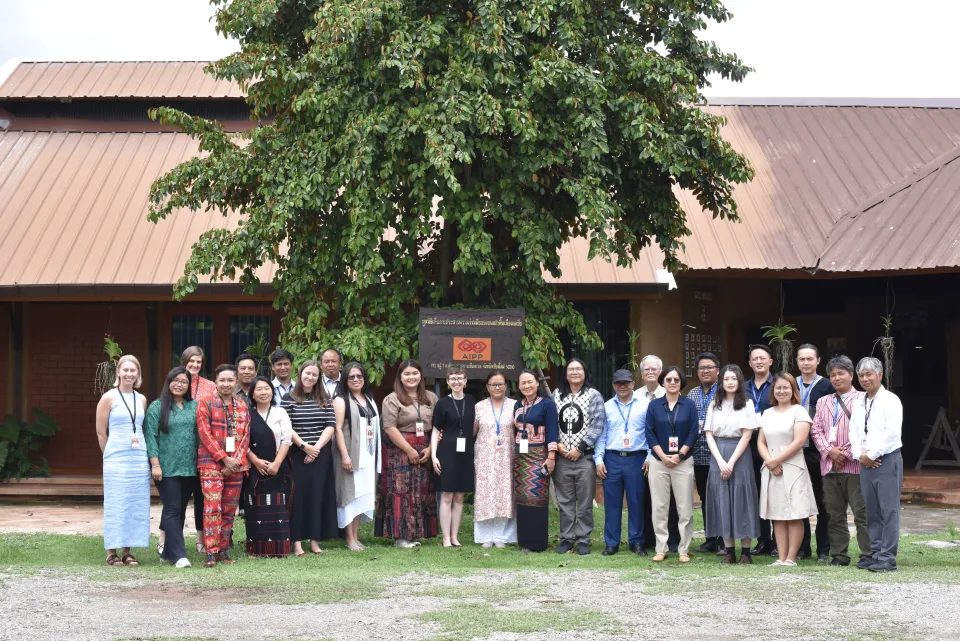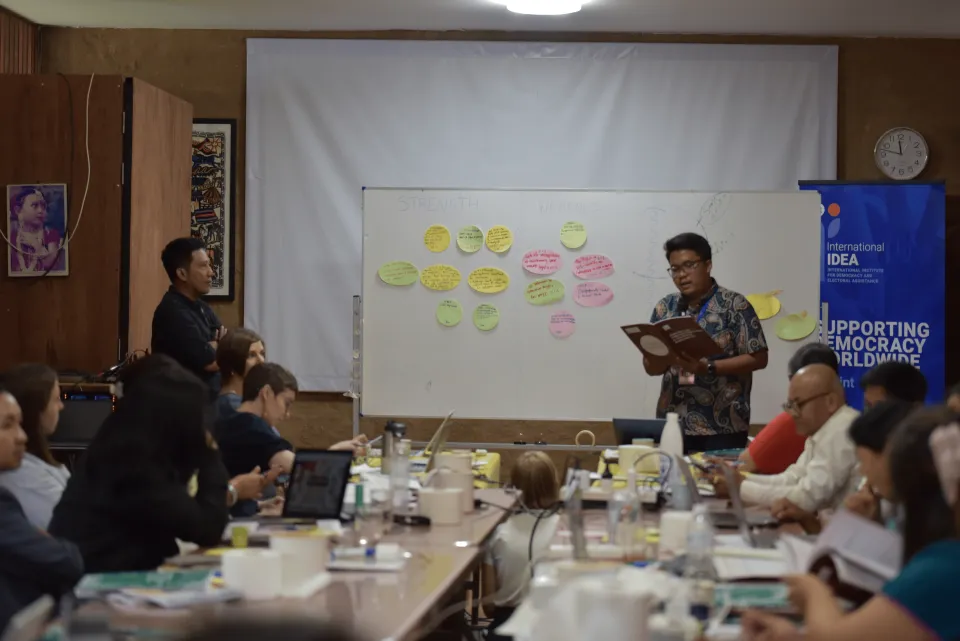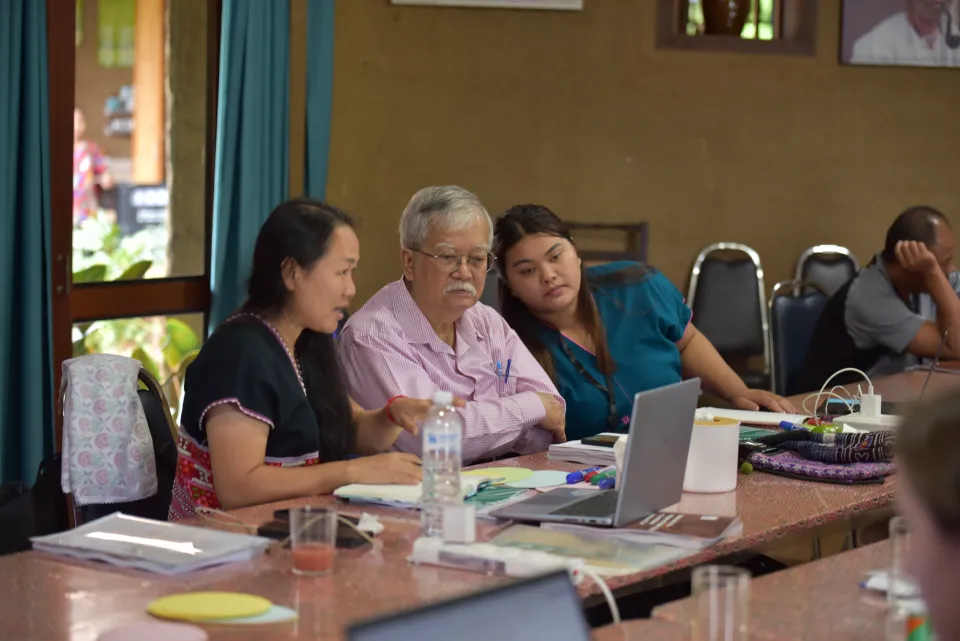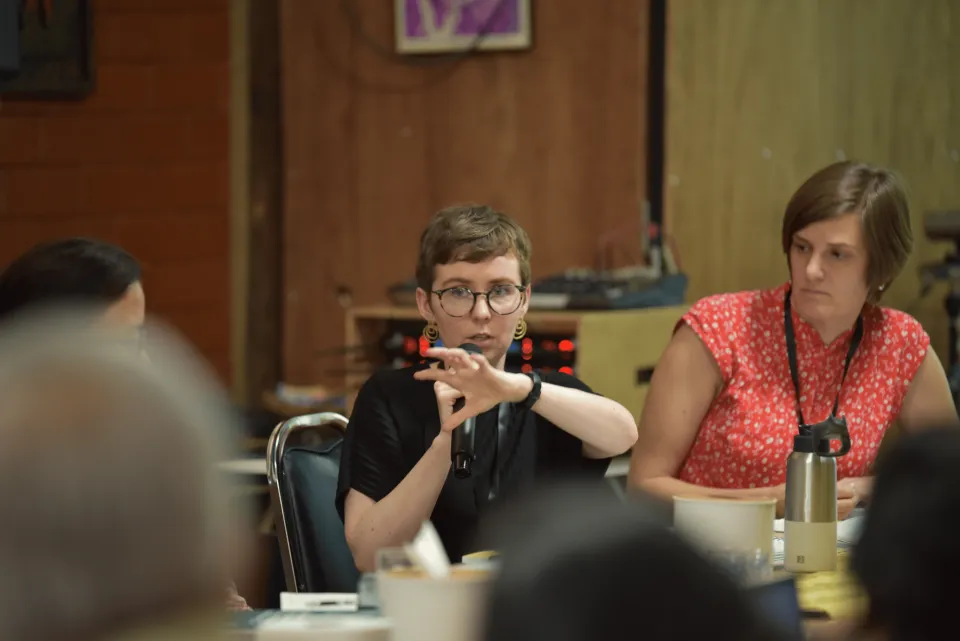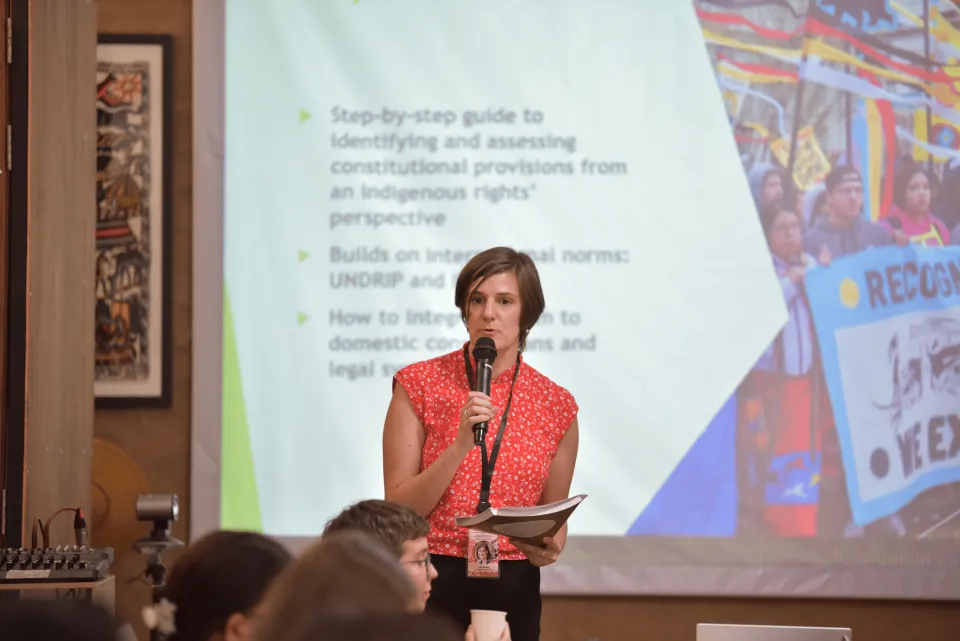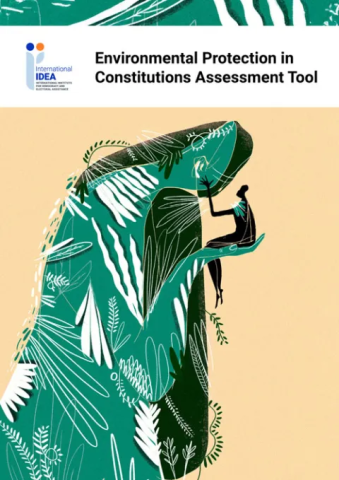
Empowering Indigenous advocates with legal tools for inclusion, rights and environmental protection
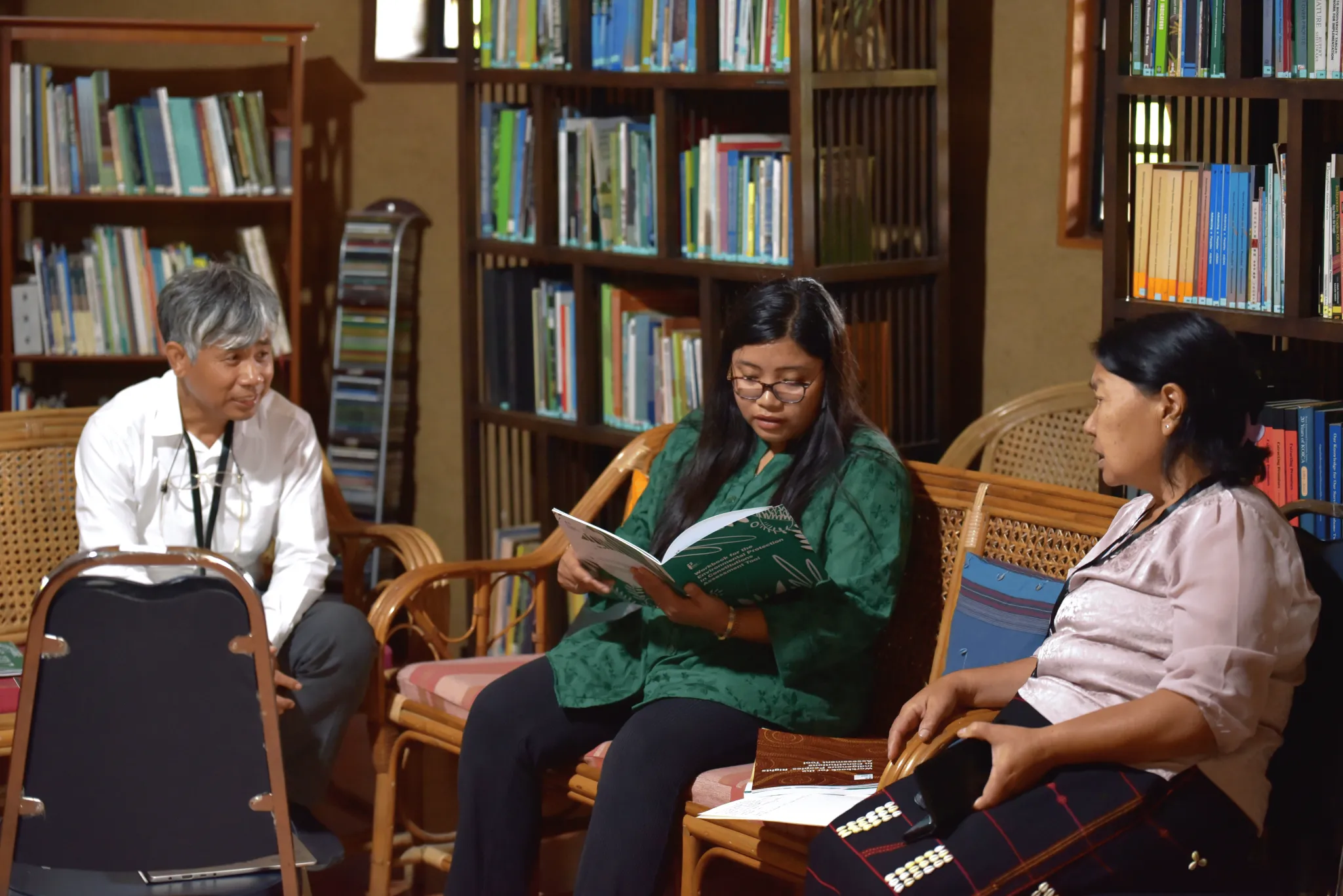
In many parts of the world, Indigenous Peoples maintain a profound relationship with their lands—a connection that often has deeply political, social, cultural, spiritual, and religious dimensions. Yet all too often this relationship is undermined (or even disregarded) by legal and political systems that fail to recognize Indigenous rights. Today, as climate change and biodiversity loss accelerate, there is a growing recognition that protecting Indigenous rights is not only a matter of justice, but also essential to protecting the planet.
Legal Tools to Promote Indigenous Rights and Environmental Protection
In countries where Indigenous communities steward some of the world’s most ecologically rich and fragile ecosystems, constitutional protections can play a dual role: affirming Indigenous cultures and self-determination, while also safeguarding the environment through protecting Indigenous ecological knowledge, land governance, and stewardship practices.
Putting these principles into practice, International IDEA and the Asia Indigenous Peoples Pact (AIPP) co-hosted a regional workshop in Chiang Mai, Thailand, in May 2025. Over two days, Indigenous leaders from Bangladesh, India, Indonesia, Myanmar, Nepal, the Philippines, Taiwan and Thailand immersed themselves in hands-on group work to unpack the legal and constitutional frameworks that define—or deny—their rights, and to formulate action plans for reform. Together, they examined how these frameworks shape access to land, political representation, and the recognition of Indigenous identity.

The training focused on International IDEA’s growing family of constitutional assessment tools, which systematically guide users through an evaluation of how effectively a constitution or draft constitution responds to the needs of historically marginalized communities. Participants tested the newly released Environmental Protection in Constitutions Assessment Tool (EPIC), analyzing constitutional commitments to environmental protection, sustainable development, and human rights.
They also worked with the Indigenous Peoples’ Rights in Constitutions Assessment Tool (IPCAT), grounded in the UN Declaration on the Rights of Indigenous Peoples (UNDRIP) and ILO Convention 169, to assess how their constitutions recognize, protect, and promote Indigenous Peoples’ rights, including in relation to land, identity, and self-determination.
By the end of the workshop, participants expressed that the tools enhanced their confidence in engaging with constitutional issues, along with a deeper familiarity with the language and structure of their own constitutions. Many also shared a renewed sense of urgency—emphasizing that constitutional reform for Indigenous rights and environmental protection is not only necessary, but long overdue in their countries, and credited the workshop with strengthening their capacity to act.
During this workshop, I have learned constitutional skills that I was not aware of before. It was quite helpful, everything was simplified in a manner I can understand. In the process, I also learned a lot of things that women, especially Indigenous women, are not aware of. We have learned that the articles and provisions can be there [for Indigenous and environmental protection] but are not always utilised … with these tools in hand, I am sure I can create [more] awareness among Indigenous women. I believe this is going to be an eye opener for many of us.
— Khesheli Chishi, Indigenous leader and chairperson of the Network of Indigenous Women of Asia
Mainstreaming Indigenous Participation and Leadership in Democratic Governance
As part of its commitment to Democracy for All, International IDEA supports Indigenous inclusion, participation and leadership at all levels of decision-making, from local governance to national processes, and in global climate negotiations. One such initiative is the Indigenous Peoples Champions for the Philippines, which has trained 40 Indigenous advocacy champions and 60 institutional champions, equipping them with knowledge of constitutional, legal, and governance frameworks. These champions are now working to bridge the gap between Indigenous communities and local institutions, ensuring that Indigenous priorities shape policies on land rights, autonomy, and environmental governance. Through this and other initiatives, International IDEA supports Indigenous priorities and voices in building truly inclusive and (climate-)resilient democracies.
